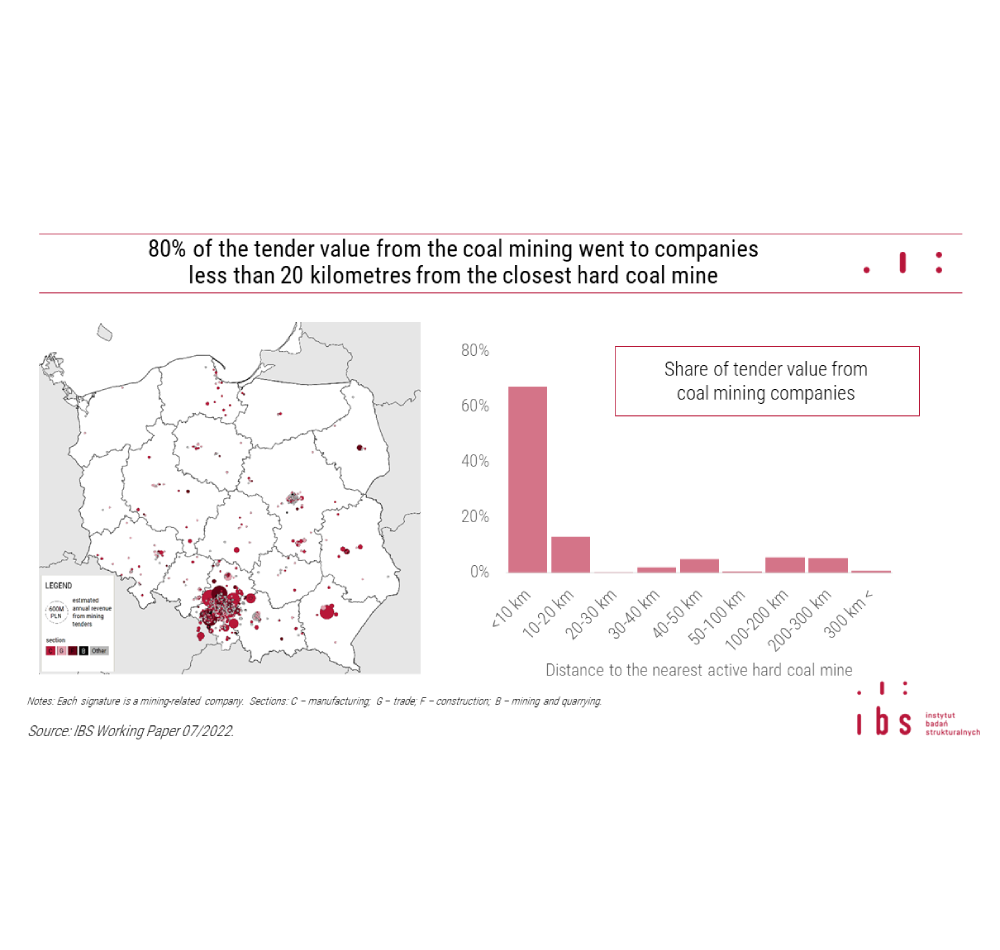It is insufficient to calculate the number of jobs in the mining industry to determine the labour market effects of a coal phase-out. This paper estimates the scale of mining-related and mining-dependent jobs in Europe’s largest hard coal mining region: Upper Silesia. In addition, we provide a precise structure and spatial distribution of mining-related companies using information from public tenders offered by five of the largest coal enterprises, coupled with financial and employment data from official administrative repositories. Our observations have shown a significant agglomeration effect in the region: companies within 20 kilometres of the nearest active hard coal mine gained 80% of all tender revenues. Moreover, we found that 41% of all identified jobs in mining-dependent companies in Upper Silesia were highly at risk of liquidation if there was a decline in coal production. Finally, we argue for labour market mitigation policies tailored to mining-dependent employees and the widespread application of administrative data in just transition planning to address the limitations of dominant top-down modelling approaches.

The initial version of this paper was prepared under the consultancy for the World Bank, United States under Contract No. 7201616 – Support to Energy Transition in Coal Regions, Poland (P173079) and then developed under research conducted within the EC-funded Horizon 2020 Framework Programme for Research and Innovation (EU H2020) project titled “Enabling Positive Tipping Points towards clean-energy transitions in Coal and Carbon Intensive Regions” (TIPPING.plus) – Grant Agreement No. 884565. The authors would like to acknowledge the support from the EC. We thank Luc Christiaensen and Celiné Ferre from the World Bank for their insightful comments. This report uses data from the Ministry of State Assets and major Polish mining enterprises. All mentioned institutions have no responsibility for the results and conclusions presented herein, which are those of its authors. The usual disclaimers apply. All errors are ours.

